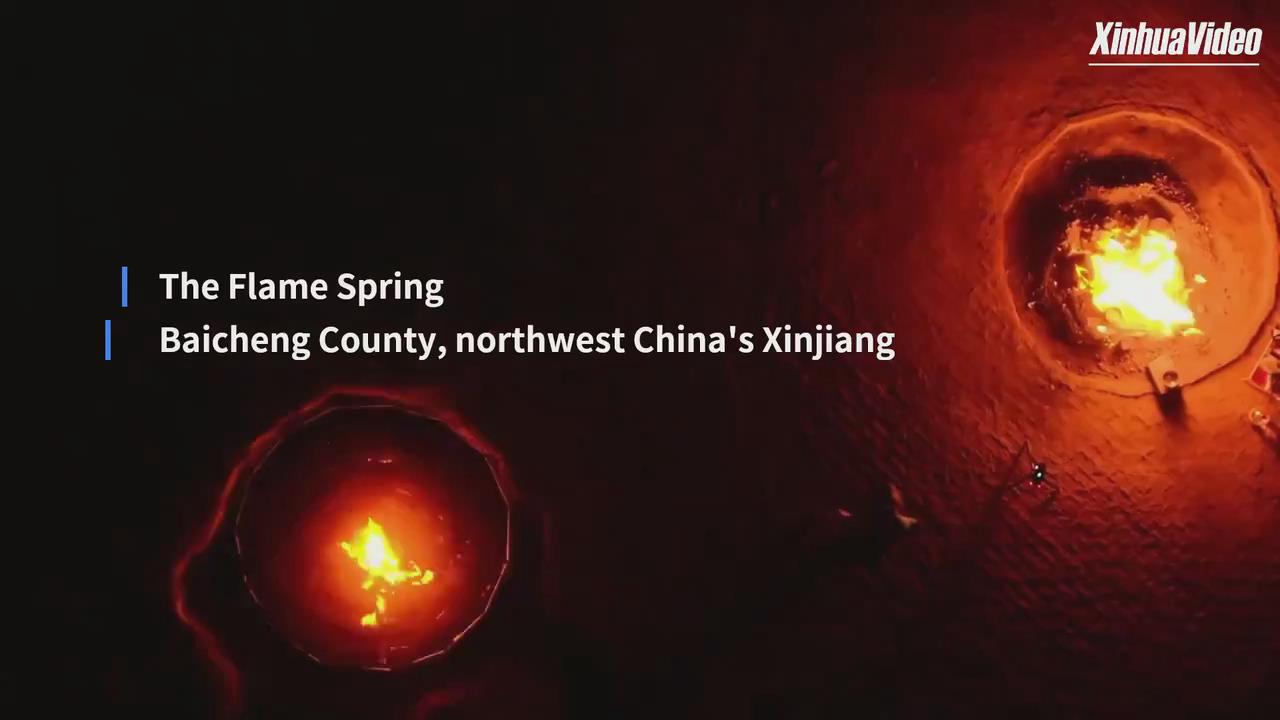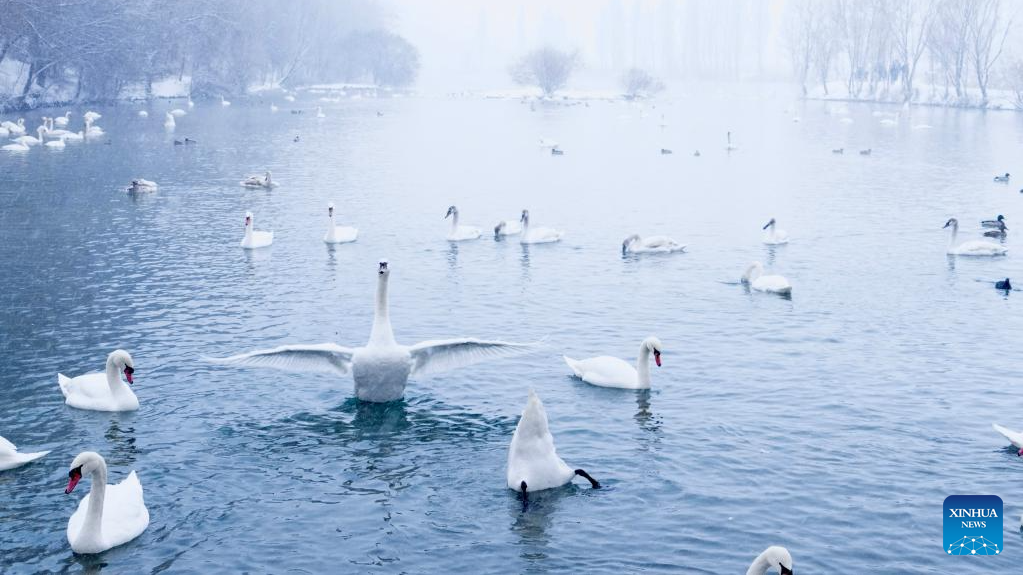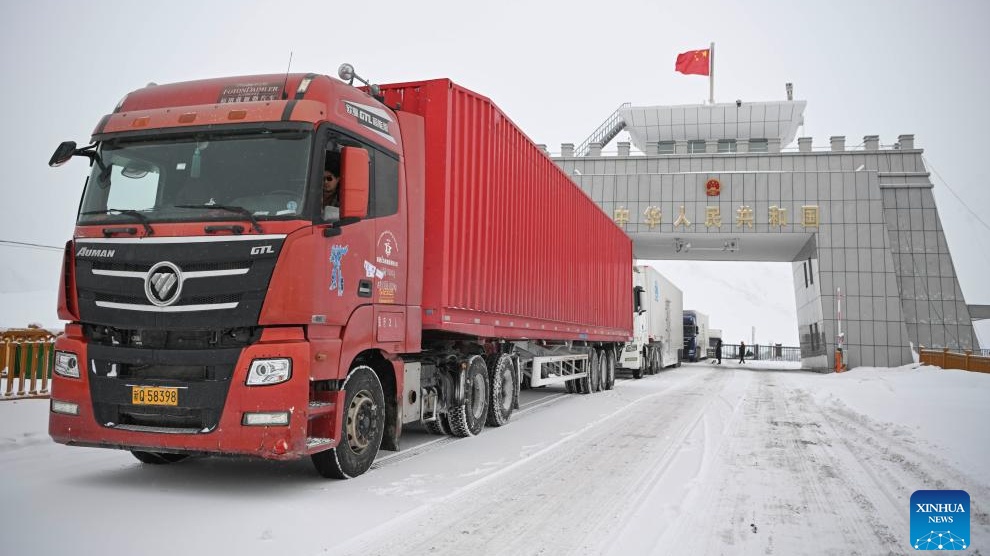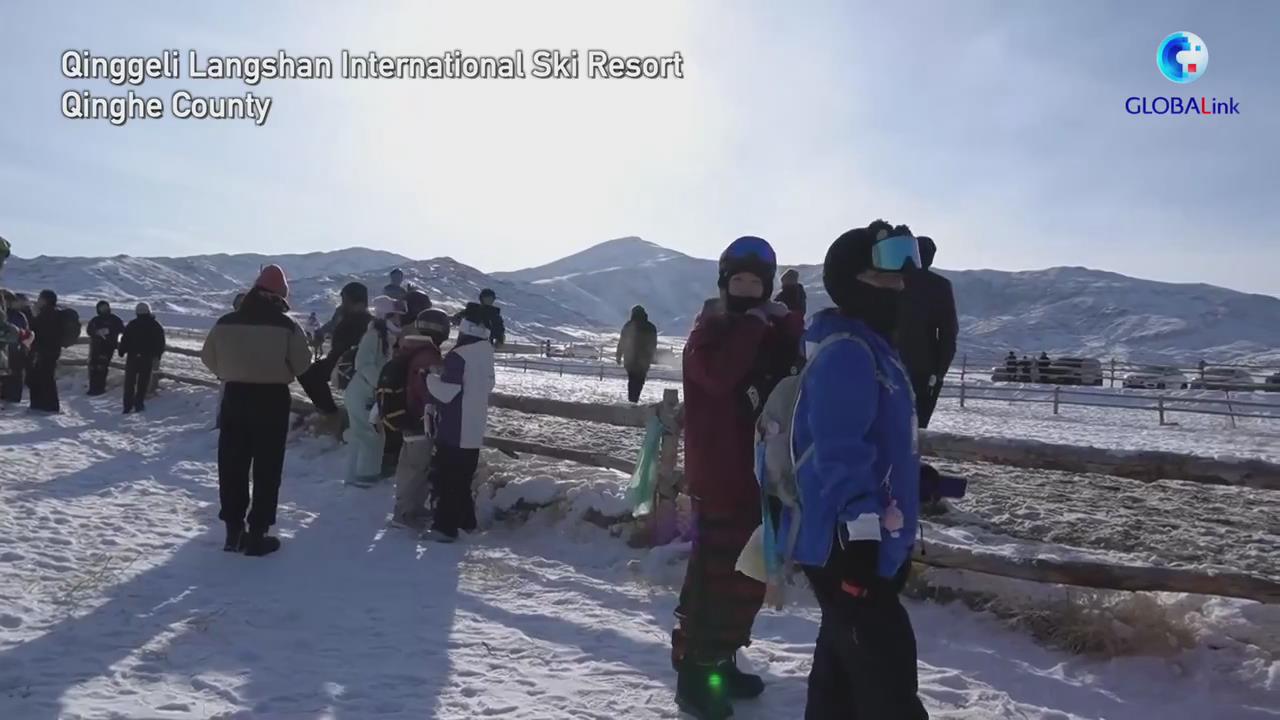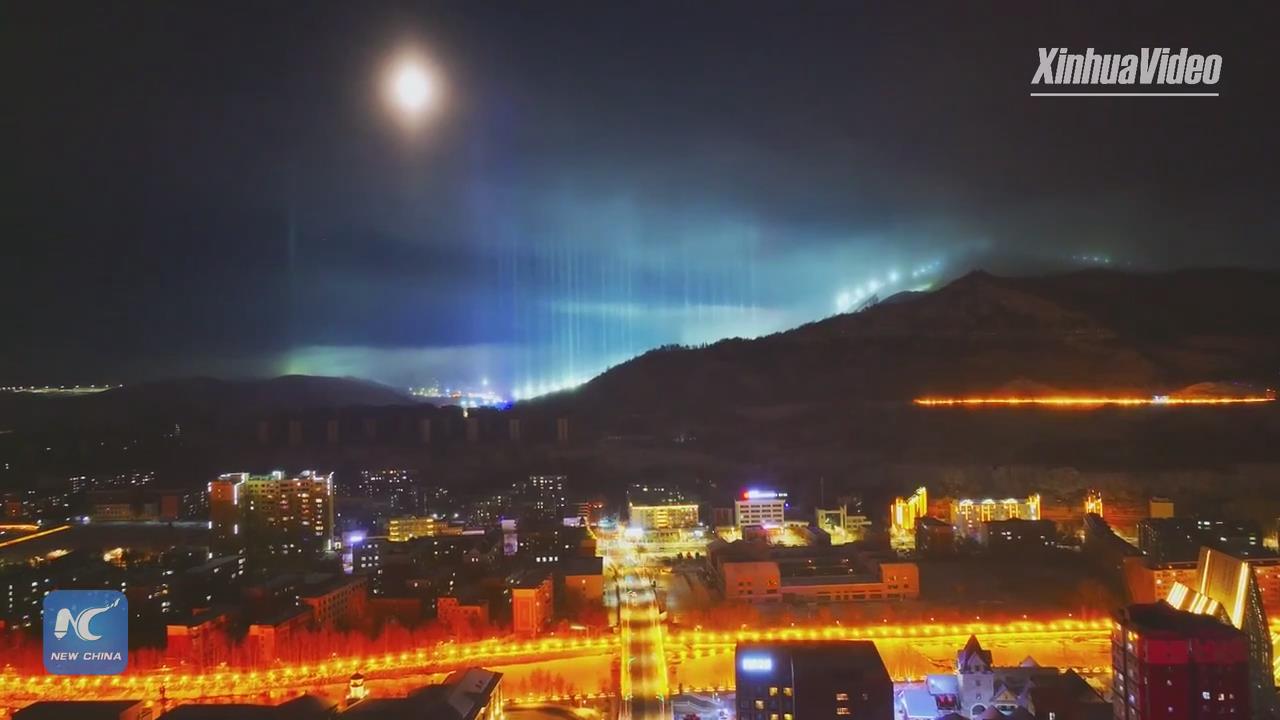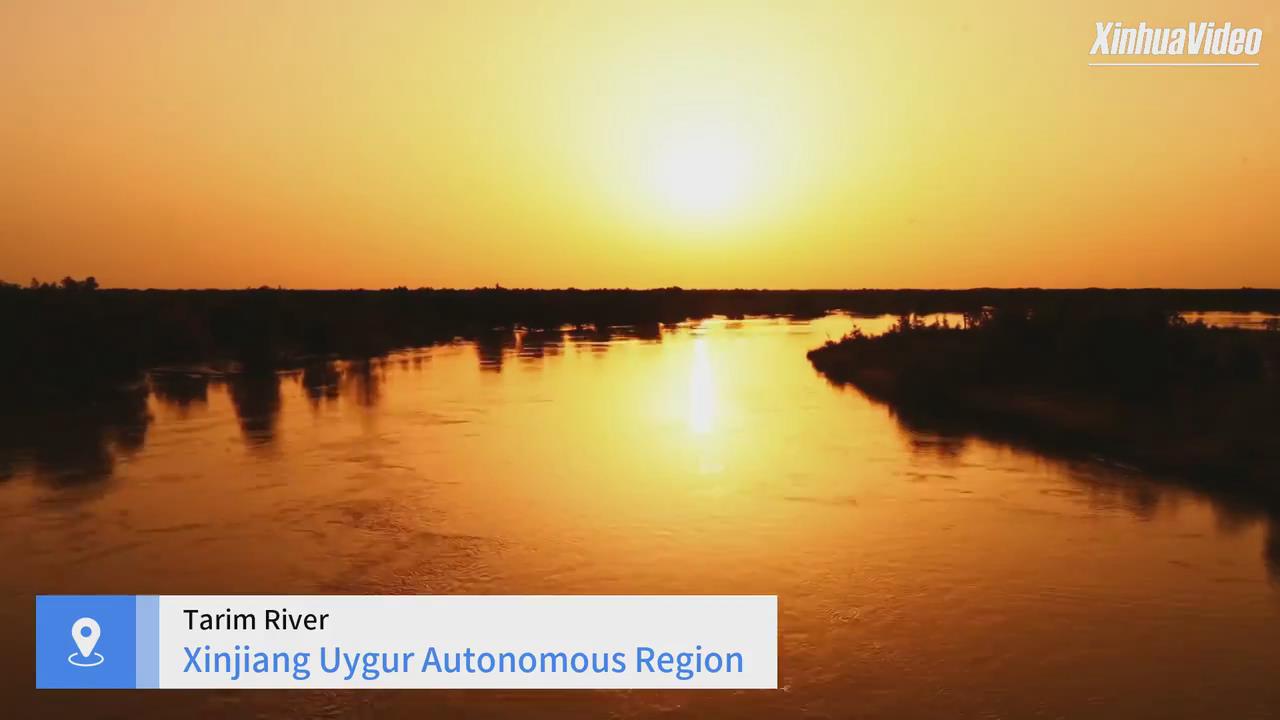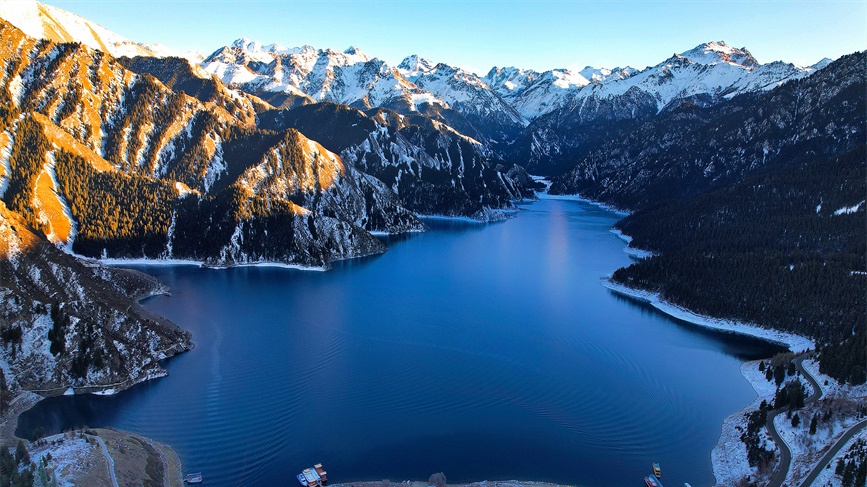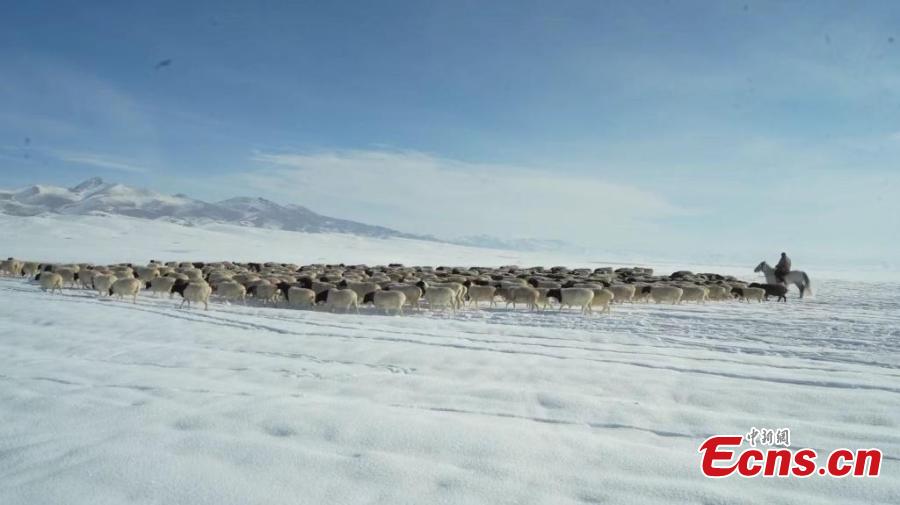
Photo shows an Akhal-Teke horse during an equestrian performance at the Xinjiang Ancient Ecological Park in Urumqi, capital of northwest China's Xinjiang Uygur Autonomous Region. (People's Daily Online/Li Long)
As June marks the peak travel season in northwest China's Xinjiang Uygur Autonomous Region, tourists are flocking to the Xinjiang Ancient Ecological Park in the regional capital, Urumqi, to immerse themselves in the area's rich equestrian culture.
Various activities centered around Akhal-Teke horses, one of the world's oldest and most iconic horse breeds, including horse-drawn carriage parades and equestrian performances, are contributing to the development of culture, tourism, commerce, and catering in the region.
The park, spanning over 40,000 square meters, is China's largest Akhal-Teke horse breeding center. It houses more than 400 Akhal-Teke horses and 18 renowned European and Asian horse breeds. The facility serves multiple purposes, including breeding, displaying, training, and showcasing Akhal-Teke horses, as well as hosting equestrian performances, competitions, and fitness activities.
The park is home to the country's only gene bank dedicated to preserving the genetic resources of Akhal-Teke horses, ensuring the breed's survival.

Akhal-Teke horses run in a spacious enclosure at the Xinjiang Ancient Ecological Park in Urumqi, capital of northwest China's Xinjiang Uygur Autonomous Region. (People's Daily Online/Han Ting)
Xinjiang, known for its expansive grasslands, has seen rapid growth in its horse industry in recent years. The region now boasts the country's highest breeding stock of horses and is a leader in horse breeding expertise.
Chen Zhifeng, chairman of YEMA Group Co., Ltd., which runs the Xinjiang Ancient Ecological Park, believes that Xinjiang holds a unique position in equestrian culture due to its abundant breeding stock of horses, making it highly competitive in the field.
"We are actively promoting horse culture through tourism, performing arts, and study tours, allowing more people to learn about the stories of Xinjiang's horses," Chen added.
In recent years, the Xinjiang Ancient Ecological Park has attracted visitors from countries such as Tajikistan, Kyrgyzstan, and Azerbaijan, cementing the park's role as a cultural hub along the Silk Road.
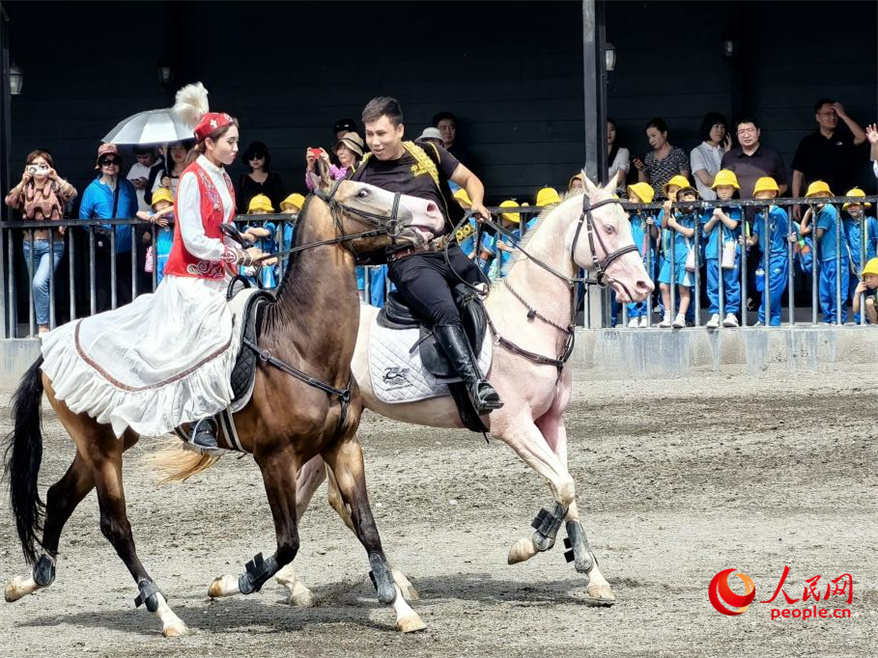
Photo shows an equestrian performance at the Xinjiang Ancient Ecological Park in Urumqi, capital of northwest China's Xinjiang Uygur Autonomous Region. (People's Daily Online/Han Ting)
Visitors to the park can also indulge in various local and international delicacies. In addition to Xinjiang's specialty food, chefs from Uzbekistan and Azerbaijan bring their expertise in Central Asian cuisine to the park, offering dishes such as Uzbek palov and baked stuffed buns, providing visitors with a delightful culinary experience.
Abram Akhmedvich Saidaliev, a Uzbekistani chef who has been in Urumqi for nearly two months, enjoys interacting with visitors and preparing specialty dishes at the park.
"I take pleasure in sharing my cooking skills with everyone and have developed a fondness for Urumqi. I hope to make more friends here," Saidaliev said.





.png)

